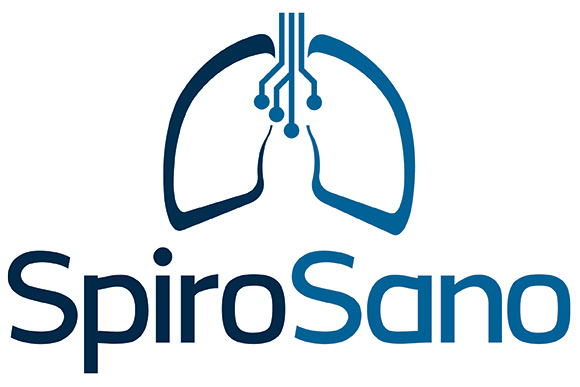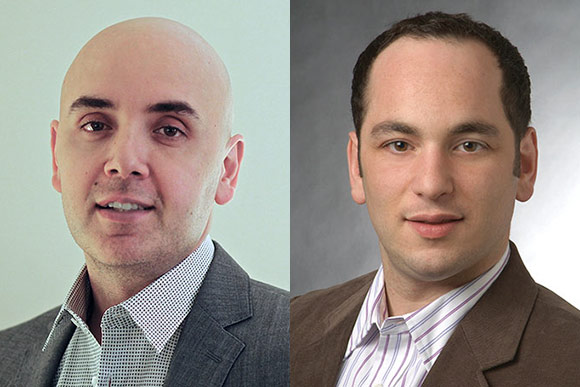SpiroSano helps patients, doctors manage conditions like asthma and COPD
When Radu Iancu left his native Romania for Cleveland to pursue his Ph.D in biomedical engineering at CWRU, he was worried about leaving his mother, who suffered from asthma and had a history of high blood pressure.
Iancu’s concern for his mother sparked an idea for monitoring such conditions. Then he met Jacob Glenn, who has a technology business consulting background. “He wanted to figure out how he could keep track of her health,” says Glenn.
Iancu and Glenn met in 2008 at Rosetta, where the two built the company’s mobile practice. They went on to form SpiroSano, a software-as-a-service company that was incorporated in April 2014.
SpiroSano has developed a system to track and manage data related to respiratory conditions such as asthma, COPD and cystic fibrosis. The data can be tracked using any medical device, such as an inhaler, with any mobile device. “The goal is to improve quality care that reduces costs and engages the patient in the process,” explains Glenn. “We make it as easy as possible to see the information.”
Basically, a doctor assigns a personalized treatment management kit to a patient. The patient chooses the devices and apps associated with the management kit assigned. SpiroSano compiles the data and provides aggregate data streams that are easy to understand and help both the patient and doctor make better treatment decisions.
Glenn says as much as 90 percent of emergency room visits for asthma attacks are unnecessary and Spiro Sano could significantly reduce ER visits and hospital admissions. “I think we will see more and more demand for this,” he says.
Glenn notes that patients often do not take their medications until they start to experience symptoms and doctors tend to disregard data if there’s too much information. “If a patient tells the doctor, ‘I used my rescue inhaler six times,’ and the doctor can see that the patient didn’t take regular meds for three days and began taking them when they started to feel bad, patients tend to leave that out. And if there’s too much data in front of the doctor, they won’t use it.”
With SpiroSano, doctors can see all of a patient’s data on the application’s dashboard in about 30 seconds. Glenn likens his device to other health devices like Fitbit or Jawbone.
Patients collect their data through their smart phones, while doctors use a web-based portal. The service costs between $20 and $40 a month, while the entire asthma kit costs between $300 and $500. Right now, insurance does not cover SpiroSano because the company is still young and there’s no return on investment information yet.
Glenn reports that the SpiroSano is just now beginning to generate revenue. The company received a $100,000 Innovation Fund grant in 2014 and was named Most Innovative Startup at the TechPint Summit in May.



